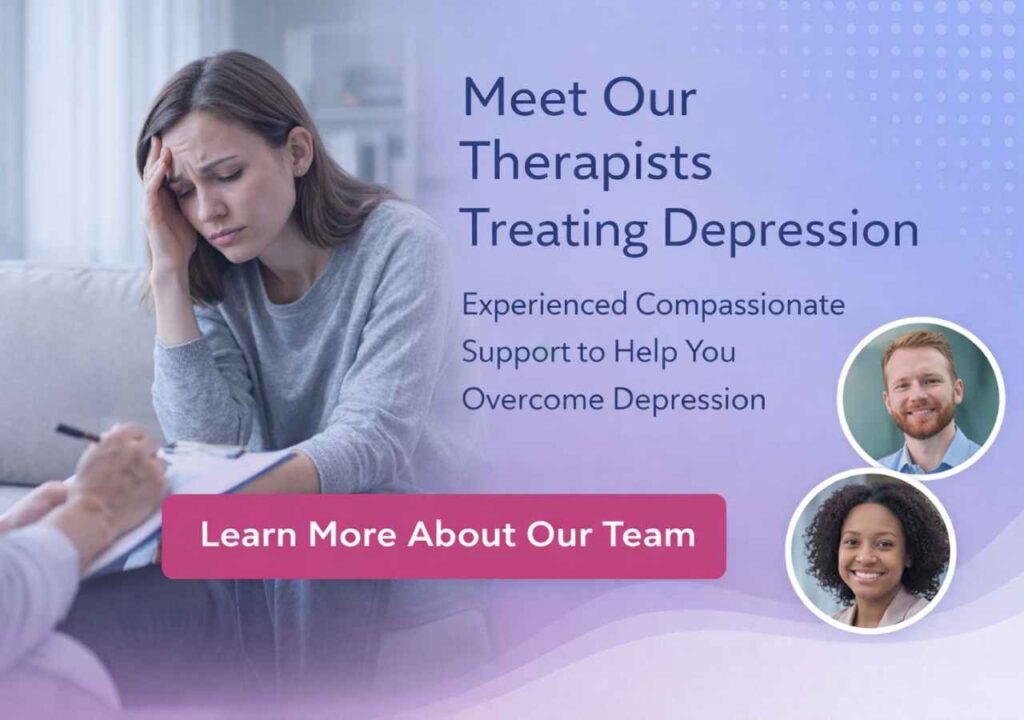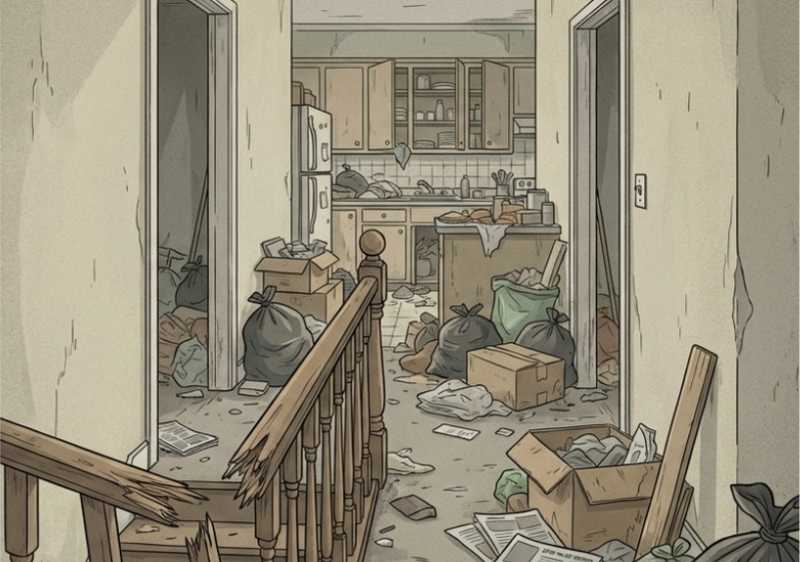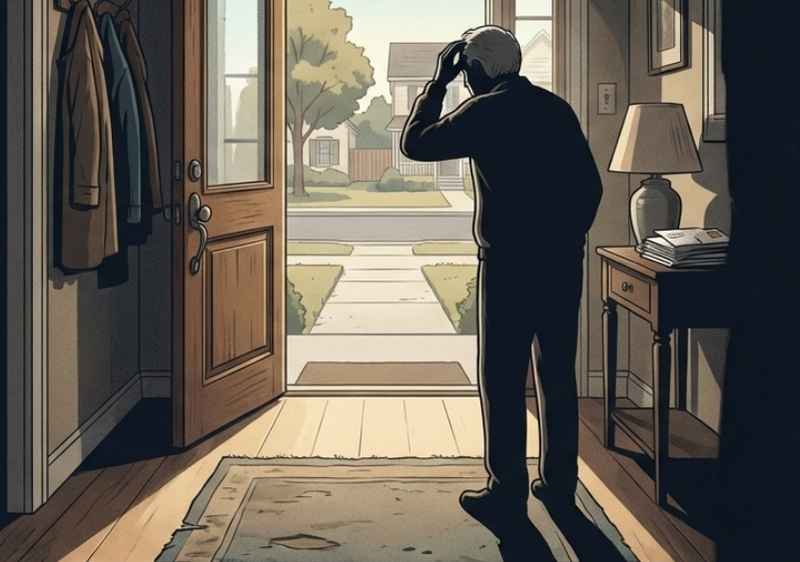Self-neglect affects millions, especially older adults, yet it often slips under the radar until serious problems appear. Unlike other forms of neglect, it happens when someone stops caring for their basic needs, skipping meals, avoiding medical care, or living in unsafe conditions. Recognizing early self-neglect signs can make all the difference.
Spotting self-neglect signs early can make all the difference. Whether you’re worried about yourself, a parent, or a friend, knowing what to look for helps you act before things get worse. Self-neglect isn’t about laziness or personal failure, it’s often a signal that someone is struggling with depression and social isolation, illness, or overwhelming life circumstances.
This guide walks through 12 self-neglect signs, shows how to tell when temporary struggles become concerning patterns, and offers practical steps for getting help. You’ll also see the difference between personal choice and true self-neglect, along with resources for intervention and support.
What Is Self-Neglect and Why It Matters
Chronic self-neglect signs in adults appear when someone consistently fails to meet their basic needs for health, safety, and well-being. It’s more than a messy room or skipping a shower after a long week, it’s a pattern that puts someone at real risk.
Clinically, it’s defined as the inability or unwillingness to care for oneself adequately. This can mean neglecting hygiene, skipping medical appointments, eating poorly, or being in unsafe living conditions. What makes this complicated is that self-neglect signs often develop slowly. Someone might begin with missed medical appointments, then stop cooking regular meals, and eventually live in unsafe living conditions
It’s also important to separate temporary neglect from chronic patterns. Everyone goes through tough periods where self-care slips, the concern rises when self-neglect signs persist for weeks or months, creating genuine safety risks.
Self-neglect is different from personal lifestyle choices. Some people prefer minimalism or unconventional living arrangements. The real question is whether the person has the capacity to make informed decisions and whether those decisions put them in danger.
Many underlying issues contribute to self-neglect:
- Depression can drain the motivation and energy needed for even basic care.
- Dementia and cognitive decline affects memory and judgment, making daily tasks confusing or overwhelming.
- Substance use disorders shift priorities away from self-care toward obtaining and using substances.
- Physical limitations from arthritis or chronic illness can make routine tasks impossible without help.
Recognizing the causes behind self-neglect signs allows us to respond with compassion instead of judgment.

12 Common Self-Neglect Signs to Watch For
1. Poor Personal Hygiene
What to look for:
- Unwashed, greasy, or matted hair
- Noticeable body odor
- Wearing the same clothes for days or weeks
- Bad breath, tooth decay, or gum problems
What matters most is noticing changes from someone’s usual habits. A person who once dressed neatly but now wears stained clothes may be showing early self-neglect signs.
Poor hygiene becomes a concern when it starts affecting health or daily functioning. Neglecting dental care for months or years can lead to tooth decay and gum disease, which may progress into infections that require urgent treatment—issues that could have been prevented with regular care.
The social consequences are often just as heavy. When bathing is avoided, painful skin conditions can develop, but the shame is often one of the hardest self-neglect signs to cope with. Someone might withdraw from work, social gatherings, or even medical appointments because of how they feel about their appearance or odor. This social isolation in older adults feeds depression, which then makes self-care even harder.
2. Neglecting Medical Care
Red flags include:
- Missing medical appointments
- Avoiding necessary treatments
- Skipping medications or taking them incorrectly
- Ignoring symptoms of illness
- Refusing medical care, even for obvious problems like infections or chest pain
Some people hoard old medications, take expired pills, or mix prescriptions dangerously. Avoiding doctors altogether, even when conditions are serious, is one of the most concerning self-neglect signs.
How problems escalate
Ignoring medical needs is one of the most dangerous self-neglect signs because health issues rarely stay the same when left untreated. Uncontrolled diabetes, for example, can lead to extreme blood sugar swings and even diabetic coma. Something as small as a cut can become a severe infection when basic wound care is skipped.
The heart attack risk
One of the most critical self-neglect signs is refusing medical attention during chest pain. Delaying care can mean the difference between a treatable condition and a life-threatening emergency.
While cost is often a barrier, ignoring available resources despite free clinics or aid can itself be one of the self-neglect signs.
3. Nutritional Neglect
Signs to watch for:
- Unexplained weight loss or gain
- Fatigue or weakness that may point to malnutrition
- Complaints about not having food
- Empty cupboards or expired food
- Eating only snacks or convenience items
Sometimes people lose the motivation or the ability to prepare meals, which is one of the clearest self-neglect signs. They may eat the same food over and over or skip meals entirely.
Physical effects
Poor nutrition is among the overlooked self-neglect signs, weakening the immune system and leading to frequent illness. Persistent fatigue makes even small tasks feel overwhelming.
Mental impacts
Nutrition affects the brain as much as the body. Poor diets reduce concentration, decision-making ability, and overall awareness of declining health. Malnutrition in older adults raises fall risk through weakness and reduced safety awareness.
4. Home Environment Deterioration
Warning signs include:
- Unsafe clutter or unsanitary kitchens and bathrooms
- Broken stairs, blocked exits, or other hazards
- Utilities disconnected due to unpaid bills
- Pest infestations, mold, or garbage buildup

The utility crisis
When electricity is cut off, food spoils, creating illness risks. Without heat, people face hypothermia in winter; without air conditioning, overheating can become deadly in summer.
Water and sanitation problems
Without running water, hygiene becomes impossible and toilets stop working, leading to unsanitary and unsafe living conditions.
Hoarding situations
In some cases, hoarding behaviors overlap with broader self-neglect signs. When possessions block rooms or make daily activities impossible, outside help is needed to restore safety.
5. Pet Neglect
Warning signs include:
- Pets that look unkempt or underweight
- Unsanitary litter boxes or waste-filled areas
- Too many animals in one space
- Sharing inadequate food between pets and owner
When someone can’t meet their own basic needs, their pets often suffer too. Sharing limited food with pets is one of the overlooked self-neglect signs that leaves both owner and animals malnourished.
Why this matters
Pet neglect is a red flag because animals rely fully on their owners. If pets aren’t being fed or cared for, it often signals that the person is struggling to care for themselves as well.
6. Social Withdrawal
What to notice:
- Rarely leaving home or avoiding visitors
- Ignoring phone calls and messages
- Skipping community, work, or religious activities they once enjoyed
- Sudden disconnection from hobbies or friendships
Social withdrawal is one of the strongest predictors of self-neglect. Avoiding meals with friends, church, or even answering the door are everyday self-neglect signs of withdrawal. Over time, the lack of interaction creates a feedback loop: loneliness deepens depression, and depression further reduces motivation for self-care.
Why it matters
Humans are wired for connection. When social ties are broken, the absence of support means no one is there to notice when self-care slips. Left unchecked, withdrawal can accelerate physical decline, cognitive impairment, and even increase mortality risk.
7. Emotional Signs of Decline
Common indicators:
- Persistent sadness or hopelessness
- High irritability or sudden mood swings
- Expressions of worthlessness or feeling like a burden
- Anxiety that prevents completing basic tasks
Mental health often drives self-neglect beneath the surface. For some, depression drains energy until brushing teeth or preparing a meal feels impossible. For others, anxiety creates paralyzing fear of leaving home, of managing bills, or even of opening mail.
The hidden danger
These emotional shifts may be subtle at first, but they often lead to physical changes that become clear self-neglect signs. A person who feels hopeless may show self-neglect signs like skipping meals, avoiding medication, or losing interest in living.
Key takeaway
Self-neglect rarely begins with a dirty house, it often starts with a heavy emotional weight. Spotting these signs early can be the difference between timely support and a preventable crisis.
8. Financial Mismanagement
Warning signs may include:
- Bills that go unpaid, sometimes leading to late fees or even utility shut-offs.
- Stacks of unopened mail, often with disconnect notices or overdue reminders buried inside.
- Spending choices that seem unusual, from impulsive purchases to giving money away in ways that don’t make sense.
- Strange or repeated bank activity, like multiple ATM withdrawals or payments to unfamiliar sources.
- Confusion about balances, due dates, or the person’s overall financial situation.
These self-neglect signs don’t usually appear all at once but build gradually over time. Someone who once managed their finances with care may start by missing the occasional due date. Over time, late fees pile up, services are cut off, and eventually the person may lose track of their expenses altogether.
The bigger concern is vulnerability. As judgment declines, scams and financial exploitation become more likely. A person who once spotted fraud easily may now give away large sums to strangers or fall for obvious schemes. When careful habits suddenly shift toward risky or reckless spending, it’s a clear signal that something deeper could be wrong.
9. Impaired Judgment
Warning signs:
- Leaving doors unlocked in unsafe neighborhoods
- Falling for obvious scams
- Making dangerous choices (like driving with impaired vision)
- Confusion about time, place, or circumstances
- Getting lost in familiar places
- Forgetting appointments or current events
The challenge with impaired judgment is that self-neglect signs often appear slowly and go unnoticed at first. A person who once took every precaution may begin ignoring obvious risks, yet still insist they are managing fine. Family and friends might notice small slips at first, like confusion about an appointment, before those slips turn into riskier decisions.

What matters most is the change from the person’s usual way of functioning. If someone who was previously careful, cautious, and independent suddenly seems unaware of danger or overly trusting in risky situations, it’s often a sign that something deeper is affecting their thinking and decision-making.
10. Substance Abuse Indicators
Concerning patterns:
- Drinking or using drugs instead of eating
- Using substances to cope with daily tasks
- Neglecting responsibilities due to intoxication or withdrawal
- Empty bottles, forgotten medication doses, or confusion about prescriptions
- Changes in drinking or drug use patterns
When alcohol or drug use begins to interfere with self-care, the risks multiply. Substance use and self-neglect often feed into each other, creating a dangerous cycle where health, hygiene, and nutrition fall by the wayside. Someone may turn to alcohol or drugs to numb depression or stress, but the very act of using makes it harder to take care of basic needs.
The dangers are even greater when substance use overlaps with other medical problems. For older adults in particular, even moderate drinking can be risky because the body processes alcohol differently with age, leading to stronger effects and higher chances of harm.
11. Mental Health Decline
Visible signs include:
- Persistent sadness or excessive worry
- Expressions of hopelessness about the future
- Sleep disturbances or appetite changes
- Loss of interest in previously enjoyed activities
- Statements about feeling worthless or being a burden
- IMMEDIATE CONCERN: Any mention of wanting to die or suicidal thoughts
Mental health and self-neglect often go hand in hand. Depression, for instance, can make even the simplest acts of self-care feel overwhelming. At the same time, when someone’s physical health declines because of poor nutrition or medical neglect, it can worsen their emotional state, creating a loop that’s hard to break.
12. Lack of Future Planning
What this looks like:
- Refusing to discuss advance directives
- Ignoring obvious home repairs
- Making no provisions for emergencies
- Living entirely day-to-day without any planning
- Avoiding bills until utilities are disconnected
- Making no preparations for weather or predictable challenges
This lack of planning is often one of the overlooked self-neglect signs rather than simple carelessness. It often reflects depression, cognitive decline, or feeling too overwhelmed to look ahead. When the present feels heavy, tomorrow becomes harder to face.
You might notice changes in habits that once showed independence. A person who used to manage bills carefully may now leave mail unopened, or a homeowner who once fixed problems quickly may ignore repairs. These shifts can point to deeper struggles that need professional support.
Practical Ways to Support Someone Showing Self-Neglect Signs
1. Start with gentle concern
How you begin matters. Criticism usually leads to resistance, while a softer approach creates openness. Instead of saying, “You’re not taking care of yourself,” try something like, “I’ve noticed you’ve seemed more tired lately. How are you doing?” This changes the focus from blame to care.
2. Focus on trust, not quick fixes
Conversations about self-neglect should never feel rushed. Trust builds gradually, and trying to solve everything at once can be overwhelming. Listening with patience, acknowledging their feelings, and respecting their pace shows that you value them, not just their problems.
3. Offer practical support
Sometimes words aren’t enough. Small, concrete gestures, bringing over a meal, helping with groceries, or assisting with a household task, can make life feel more manageable. These actions not only ease the burden but also show that the person isn’t alone.
4. Balance care with respect
Family and friends can be a lifeline, but support must never feel like control. When offers of help come across as judgment or pressure, the person may withdraw even more. The goal is to empower, not to take over.
5. Recognize limits
Not everyone is ready to accept support. Pushing too hard often has the opposite effect. Sometimes the most meaningful thing you can do is stay consistent, keep showing up, keep caring, and keep the door open until they feel ready to accept help.
When to Contact Professionals
Adult Protective Services (APS)
APS becomes involved when a person can no longer meet their own basic needs and faces serious harm. Each state has its own criteria, but the common thread is danger paired with an inability to see or address it. Because APS involvement can feel intrusive and sometimes overwhelming, it’s usually best reserved for severe cases where safety is truly at risk.
Healthcare Providers
When self-neglect may be tied to medical or mental health conditions, healthcare professionals should be the first step.
- A primary care doctor can look for physical health concerns, signs of cognitive decline, or side effects from medication.
- Mental health providers can assess for depression, anxiety, or other conditions that may interfere with daily life.
Mental Health Emergencies
Act immediately if a crisis is unfolding. Situations that need urgent help include:
- Suicidal thoughts or behaviors
- Severe depression that prevents basic functioning
- Psychosis, such as hallucinations, delusions, or severe confusion
In these moments, don’t wait. Contact a crisis hotline, emergency department, or mobile crisis team right away.
Legal Options
If someone consistently makes unsafe decisions and lacks capacity, legal steps such as guardianship or conservatorship may be necessary. These steps are serious, as they remove important rights, and should only be considered once less restrictive options have been tried and shown to be insufficient.
Emergency Situations
When immediate danger is present, such as a medical emergency, fire, gas leak, or any life-threatening risk, call 911 without hesitation.
Self-neglect signs are often linked to deeper struggles with health, mental wellbeing, or life circumstances. Recognizing the difference between lifestyle choice and true self-neglect signs isn’t always easy, but paying attention can protect someone’s safety and dignity.
Early support matters. Recognizing self-neglect signs with a steady check-in, a caring conversation, or timely professional help can prevent small concerns from becoming larger crises.
Choose Insight Therapy Solutions When Exploring Therapy Options
At Insight Therapy Solutions, we help individuals and families navigate these challenges with compassion and expertise. Our team helps individuals and families find clarity, address underlying struggles, and build healthier routines of care. If you’re worried about someone you love or if you’ve noticed these patterns in your own life, now is the time to reach out. Book your free 15-minute match session today and start your path to feeling better.
Support is available, and recognizing self-neglect signs early makes it easier to restore balance and safety.
Lalest Posts
- Vasovagal Syncope: Exploring the Link Between Stress and Fainting
- Online Couples Therapy: Who It Works For and When to Consider It
- Racing Thoughts at Night: How to Calm Your Mind When You’re Exhausted
- The Honest Reason You Keep Googling “Do I Need Therapy” and Then Closing the Tab
- BPD and Relationships: How to Build Healthier Connections and Find Hope
Further Information and Resources
For additional support, visit:
- Mayo Clinic Health System: Provides trusted, evidence-based medical information, expert care, and community health resources to help people improve their overall well-being.
- The Gottman Institute: Provides research-backed insights on relationship dynamics and communication strategies.
- National Alliance on Mental Illness (NAMI): Mental health education and support in the U.S.
Disclaimer:The information in this blog is for educational purposes and is not a substitute for professional mental health care. If you’re experiencing severe anxiety or a mental health crisis, please contact a mental health professional or crisis hotline immediately.


